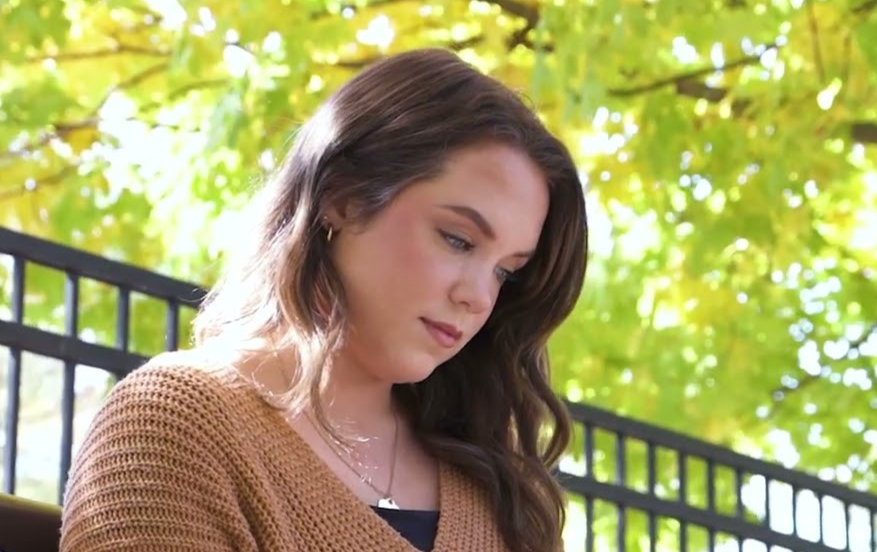

Jun 25 2025
When a Morning Workout Turned Deadly


Summary
Samantha Nanney Hudspeth of Pontotoc knew what she was experiencing was "not your normal soreness."
Samantha Nanney Hudspeth is proof that it pays to listen to your body.
In June 2023, the 26-year-old from Pontotoc decided it was time to step up her exercise game to boost both her physical and mental health. “I was an avid runner and a dancer, but I hadn’t been consistent,” Samantha said. “I have always been active, but I hadn’t been working out as much.”
Still, given her previous fitness level, Samantha said, “I thought I’d be okay to try something new.” So, she jumped into a free spin class at Pontotoc Wellness Center.
“I made it through class fine,” she said. “Afterward, I realized my legs were a little wobbly, so I took it easy the rest of the day.”
Before long, Samantha knew something was awry. “This was not your normal soreness,” she said. “I felt like my muscles were expanding and had nowhere to go.”
Samantha woke up at 2 a.m. the following morning and could not bend her legs. “I had to walk ‘peg leg,’” she said. “I tried to stretch as best I could, and I took some ibuprofen to help the soreness. I know my body pretty well, and I knew something was off.”
Later that day, a friend mentioned rhabdomyolysis (“rhabdo” for short), a rare but serious condition caused by excessive muscle breakdown.
Rhabdo happens when muscle fibers die and release their contents into the bloodstream. The condition can cause renal complications leading to kidney failure. It can also cause compartment syndrome, a painful condition that occurs when pressure within the injured muscles builds to dangerous levels, causing severe swelling and decreasing blood flow. Compartment syndrome often requires surgery to restore normal blood flow and keep muscle tissue from dying. Left untreated, rhabdo can be fatal.
Rhabdo can have multiple causes, but the most common is when people push themselves too hard during a new, intense workout or after sitting out for a while.
“I did some online research and learned that a sign of rhabdo is that your urine turns a dark Coke color,” Samatha said. “A few hours later, that happened to me.”
Samantha called her grandmother, who drove her to an urgent care clinic in Pontotoc. “They did a urine sample, and my creatinine kinase levels were too high for the machine to read. The clinic sent me straight to the ER in Tupelo.”
She was admitted to North Mississippi Medical Center, where doctors ran multiple tests on her heart, kidneys and liver to check for damage. Because her creatine kinase levels continued to soar, they also started IV fluids to flush her kidneys and help prevent damage.
“When they started talking about possible renal failure, it got scary. I’m thankful I went ahead and got it checked out,” she said. “I got 33 bags of fluid put through me over the eight days I was in the hospital.”
Samantha had never been in a hospital before but says the NMMC team was extremely compassionate. “It was the most painful situation I’ve ever been in. My legs were hard as rocks,” she said. “The staff helped me understand everything because they knew I didn’t know what was happening. The nurses made me feel safe and secure.”
After being released from the hospital, Samantha continued to recover ever so slowly. “I am used to being up and active, but I couldn’t do much without getting out of breath,” she said. “It was a month or two before I got fully back to normal.”
Samantha learned much from this experience, including the prudence of easing into a new high intensity workout (or even a familiar one if you’ve taken a break).
And most importantly, she learned firsthand the value of listening to her body. “Be in tune with yourself and don’t ignore when things are off,” she urged. “It could save your life.”
Samantha's Story
